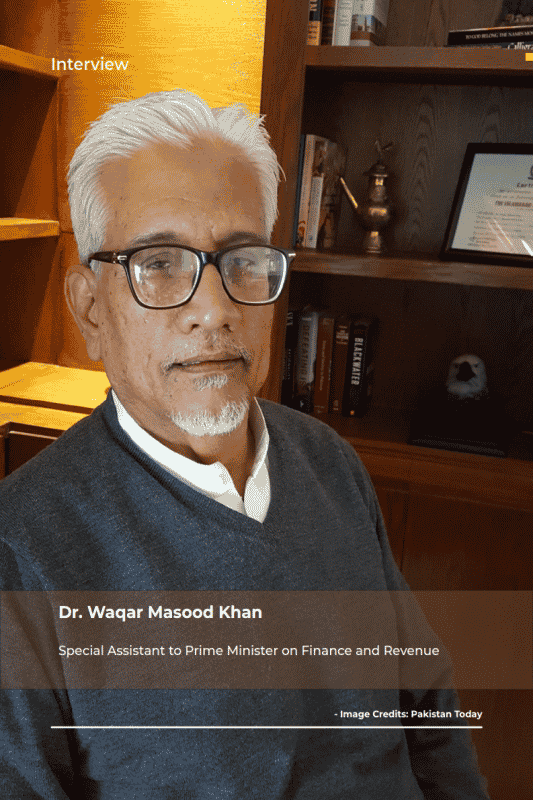Interview with Dr. Waqar Masood Khan
Q1: FBR Policy Board has decided to make a Tax Policy Unit at Ministry of Finance; PIDE has been vouching for a tax policy for growth; what contours or principles you suggest for Tax Policy in Pakistan.
Tax policy board met in February, and it is decided that dedicated people will be invited for tax policy. Actually, tax collectors are the policy makers and they don’t get an opportunity to focus on tax policy alone. That is why a dedicated unit is in the making. It will have fiscal economists, chartered accountants, lawyers and finance graduates. They will analyze tax policy from all aspects and will frame their recommendations. And then as per the process, in the light of these recommendations, the board, different government bodies like ECC and the cabinet meet specially during budget and decisions are made regarding the approval of different tax proposals. The work is in progress. Now what are the principles of tax policy? The basic principle of the tax policy or the centre point of the tax policy should be to ensure that ease is created for the tax payers who are liable to pay taxes so that the tax payers can voluntarily pay taxes. Then tax policy is also used for nudge, though we are not encouraging it, but it is used to create incentives. In important socio economic areas where development is required, the tax policy is used to provide different incentives to attract investments. The unit will analyze all these recommendations. The objective of the corporate income tax reforms introduced under the imf program is to focus on various tax exemptions which can be wither in the form of complete exemptions or concessions in the form of low tax rates. These are not conducive to our tax regime. A huge amount of revenue is wasted because of these which is called tax expenditures. In the last report the tax expenditures or tax costs are estimated to be around 1.1 trillion rs. We have provided every possible different tax exemptions and concessions. We ensured imf that this will be done in this program. We have implemented first part of it. In the next budget decisions related to personal income tax and sales tax will be made. The removal of these concessions will improve the tax regime and tax revenue will increase. As stated earlier, we have to decrease tax expenditure and should not use tax as an incentive as it creates distortion. This is the basic principle behind these reforms.




